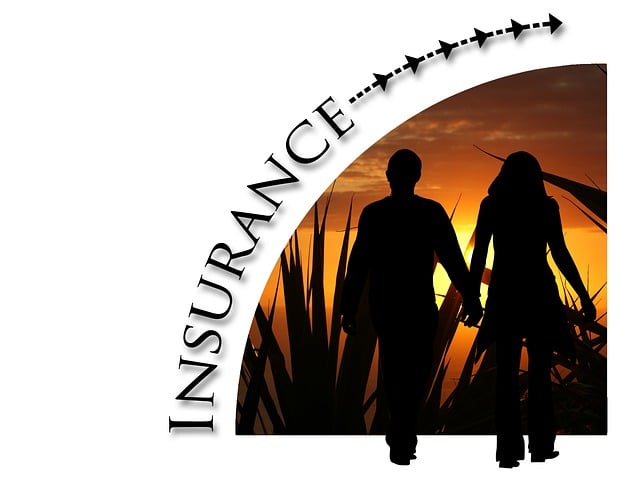Comprehensive Liability Insurance is a critical component of risk management for businesses, addressing potential financial risks from negligence or harm caused to third parties. Tailored solutions are essential for diverse industries, offering protection against accidents, property damage, personal injury, and professional negligence. Customizing policies ensures adequate coverage for unique business needs, enabling organizations to focus on growth and innovation while securing their financial future. This insurance is vital for maintaining stability, reputation, and continuity in today's competitive market.
In today’s dynamic business landscape, understanding and managing risk is paramount. This article delves into Comprehensive Liability Insurance, a crucial shield for businesses of all sizes. We explore essential aspects of risk management, from understanding business liability to customizing policies tailored to specific industry needs. Discover why this coverage is indispensable, covering everything from property damage and interruption to professional liability. Learn how to mitigate external hazards and protect your business’s future with robust Comprehensive Liability Insurance solutions.
Understanding Business Liability: The Basics of Risk Management

Business liability is a critical aspect of risk management for any enterprise, and it forms the backbone of comprehensive liability insurance. It refers to the potential financial risks businesses face due to claims of negligence or harm caused to customers, employees, or third parties. These liabilities can arise from various sources, such as product defects, slip-and-fall accidents on business premises, or even allegations of professional malpractice.
Comprehensive Liability Insurance is designed to protect businesses by providing financial coverage for these potential risks. It offers a safety net, ensuring that businesses can manage claims without facing severe financial setbacks. This insurance helps businesses stay afloat and maintain their reputation by mitigating the costs associated with legal defense, settlement agreements, and court-ordered damages. Understanding business liability and having adequate insurance is essential for any organization aiming to foster stability and growth in today’s competitive market.
Types of Business Operations and Their Associated Risks

Different types of business operations come with unique risks, requiring tailored liability coverage solutions. For instance, retail businesses face potential risks from customer slip-and-falls or product liability claims, necessitating comprehensive general liability insurance to protect against such incidents. In contrast, construction sites pose inherent hazards due to heavy machinery and active work environments, making it crucial for contractors to carry workers’ compensation and commercial liability insurance to mitigate injuries and property damage liabilities.
Service-based businesses, like consulting firms or law practices, may encounter professional negligence claims, emphasizing the importance of professional liability (errors and omissions) insurance. Furthermore, businesses operating in regulated industries must adhere to specific legal requirements, often requiring additional coverage for regulatory fines and compliance issues. A comprehensive liability insurance policy should be designed to address these distinct risks, ensuring business continuity and financial protection against potential liabilities.
Why Comprehensive Liability Insurance is Essential for Businesses

Comprehensive Liability Insurance serves as a shield, protecting businesses from potential financial pitfalls and legal liabilities. In today’s complex business landscape, where risks are ever-present, this insurance is not just a consideration but an indispensable asset. It offers protection against claims arising from accidents, property damage, personal injury, or even professional negligence, ensuring that a business can weather unexpected events without facing severe financial strain.
By availing themselves of Comprehensive Liability Insurance, businesses gain peace of mind knowing that their financial future is secure. This coverage enables them to focus on growth and innovation rather than constant worry about potential lawsuits or incidents. It’s an investment in the long-term stability and survival of any organization, providing a safety net that can prevent a single incident from turning into a financial crisis.
Key Components of a Robust Liability Coverage Solution

A robust liability coverage solution is built on several key components that work in harmony to protect businesses from unexpected risks and financial losses. First and foremost, Comprehensive Liability Insurance stands as a cornerstone, offering protection against claims arising from bodily injury or property damage to third parties. This includes not just direct damages but also legal fees and other associated costs incurred during the defense process.
Beyond comprehensive liability insurance, an effective strategy incorporates professional liability coverage to safeguard businesses against errors, omissions, and negligence that may result in financial harm to clients or customers. Additionally, business owners should consider general liability insurance as a vital part of their risk management arsenal, protecting them from a wide range of common risks that can arise in the course of daily operations.
Customizing Your Policy: Tailoring to Your Industry's Unique Needs

Customizing your business liability policy is essential to ensuring adequate protection tailored to your industry’s unique risks and needs. Unlike one-size-fits-all approaches, comprehensive liability insurance allows for flexibility in coverage options. This means you can select specific types of liability protection relevant to your operations—whether it’s professional services, retail sales, or manufacturing processes.
By customizing your policy, you can better navigate potential claims and legal liabilities. For instance, a construction company may require broader coverage for on-site accidents, while a tech startup might need protection against intellectual property disputes. This personalized approach ensures that your business is shielded from industry-specific perils, providing peace of mind and financial security.
The Role of Public Liability in Protecting Your Business Against External Hazards

Public liability plays a pivotal role in safeguarding your business from potential external risks and hazards. This type of insurance is designed to protect against claims arising from injuries or damage caused to third parties, such as customers, clients, or members of the public on your premises. By having comprehensive liability insurance in place, you can ensure that your business is prepared to face unforeseen circumstances that may lead to legal liabilities.
It covers a wide range of scenarios, including accidents, slips and falls, product liability, and even personal injury caused by negligence. This coverage is essential for maintaining the financial stability of your business as it shields against costly lawsuits and settlement expenses. With comprehensive liability insurance, you can rest assured that your business has the necessary protection to navigate through legal complexities and focus on growth and success.
Property Damage and Business Interruption: How to Mitigate These Risks

Business owners often face significant risks related to property damage and business interruption, which can have severe financial implications. These events can be mitigated through strategic planning and the implementation of robust risk management strategies. One crucial step is acquiring Comprehensive Liability Insurance, which offers protection against a wide range of potential liabilities.
By having this coverage, businesses can safeguard their assets and financial stability in case of unforeseen circumstances such as natural disasters causing property damage or disruptions like power outages leading to business closures. Proactive measures include regular maintenance checks, emergency response plans, and backup systems to minimize the impact of such events. Additionally, staying compliant with local regulations and keeping comprehensive records can further reduce the risk of interruptions and associated liabilities.
Professional Liability Insurance: Shielding Your Business from Legal Claims

Professional Liability Insurance, often referred to as Errors and Omissions (E&O) coverage, is a crucial component of any business’s risk management strategy. It shields entrepreneurs and businesses from financial ruin by providing legal defense and compensation in the event of professional negligence claims. This type of insurance is particularly vital for service-oriented businesses, such as consulting firms, law practices, and healthcare providers, where errors or omissions can lead to significant legal repercussions.
Comprehensive Liability Insurance goes beyond traditional general liability by focusing specifically on mistakes or oversights made during business operations that result in financial loss or harm to clients or customers. It ensures that businesses have the resources to navigate complex legal battles and maintain their reputation, even in the face of challenging claims.
Exploring Additional Coverage Options for Comprehensive Risk Management

In addition to standard Business Liability Coverage, exploring additional options can significantly enhance a company’s risk management strategy. Comprehensive Liability Insurance extends protection beyond typical scenarios, addressing unique risks that specific industries or business activities may present. This includes coverage for professional services, product liability, and even operational issues that could lead to property damage or personal injury.
By opting for these expanded coverage options, businesses can safeguard themselves against potential lawsuits and financial losses resulting from unforeseen circumstances. Customizing their insurance policy in this way allows companies to maintain peace of mind, knowing they are prepared for a wide range of liabilities, thereby fostering a more robust and resilient business environment.
